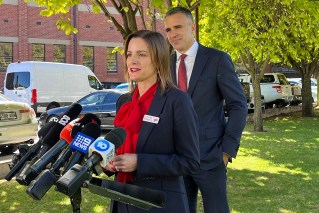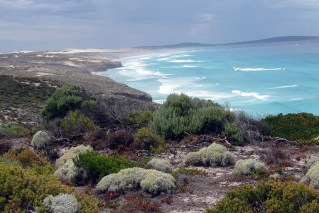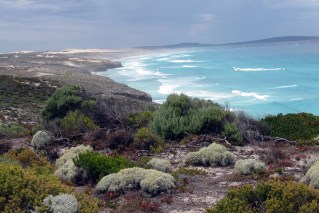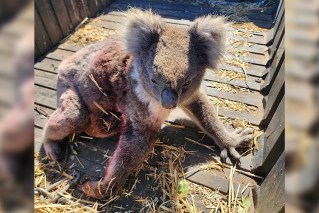Millions of ladybirds descend on South Australian radio tower
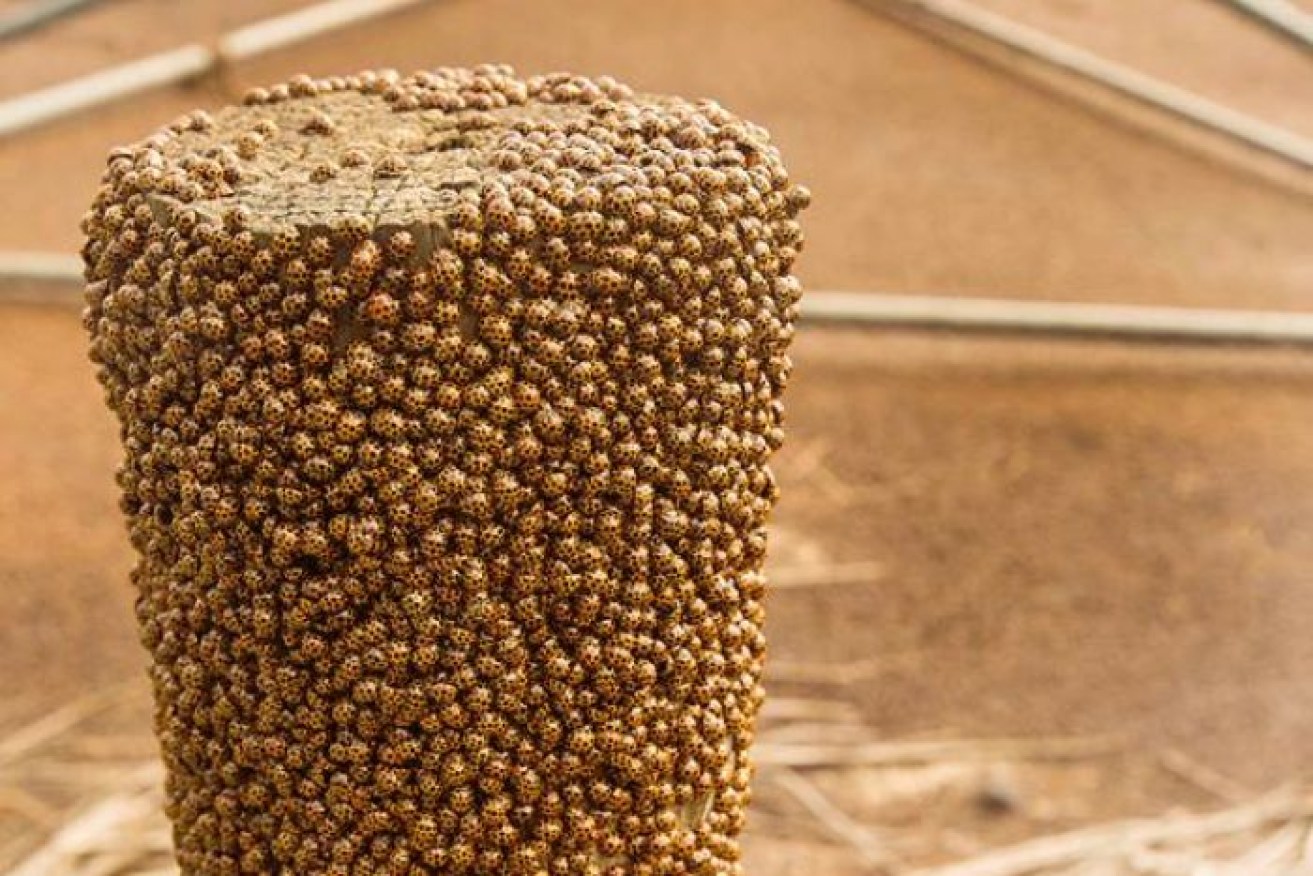
Ladybirds cover a post in Mount Burr near Millicent in South Australia. Photo: Steve Chapple
Millions of ladybirds are massing under a remote radio tower near Mount Burr in South Australia, with the location also attracting visitors keen to see the unusual sight.
Steve Chapple came across the mass and was taken aback by his find.
“I’ve always been astounded by the numbers out there but this year was just phenomenal,” he said.
Mr Chapple said he had been told by a friend about seven years ago of the location where ladybirds would come to in their thousands each year.
Now though, things have become more intense than usual.
“This is the thickest I’ve ever seen them,” he said.
“They’re four inches deep and the base of the tower is about five metres by five metres, so you’d have to talk in the millions.
“This is the first year that the netballers at Mount Burr have them landing on them and poles during their game. They’re there all day.
“This is the first year that the netballers at Mount Burr have them landing on them and poles during their game.
“They’re there all day.
“They swarm during the middle of the day and then they land back in the crevices, the cracks, the pipes during the dark.”
Experts bemused by mass ladybird find
University of Adelaide professor Andy Austin said just why ladybirds participated in such a mass event was hard to tell.
“Two likely reasons are they are mating aggregations that attract beetles to one spot, essentially to make it easier to find a mate,” he said.
“The second possible reason is that it is for protection against predators, particularly birds.”
Professor Austin said he was interested to know whether the beetles were releasing a scent — in which case the chemical deterrent could also be used to deter predators.
Mr Chapple said he had not noticed a smell coming from the ladybirds that were alive, but did notice a bad odour coming from the millions of dead ladybirds that were also at the location.
“There’s a rotten smell in the area where they’re dying,” he said.
“They’re quite thick underneath and some of the bottom ones are dying,” he said.

Thick on the ground: The ladybird swarm. Photo: Steve Chapple
Ladybird location becoming popular tourist spot
Mr Chapple said the location was now becoming popular, with more people dropping by than usual.
“I’ve told so many people about it over the last few years,” he said.
“I went up the other day to take a few more photos and there would have been seven or eight cars up there.”
Mr Chapple said based on other years, there was not much more time to see the mass of ladybirds.
“You’d have to go I’d say within the next week,” he said.
“They’re starting to die in quite dramatic numbers.”


